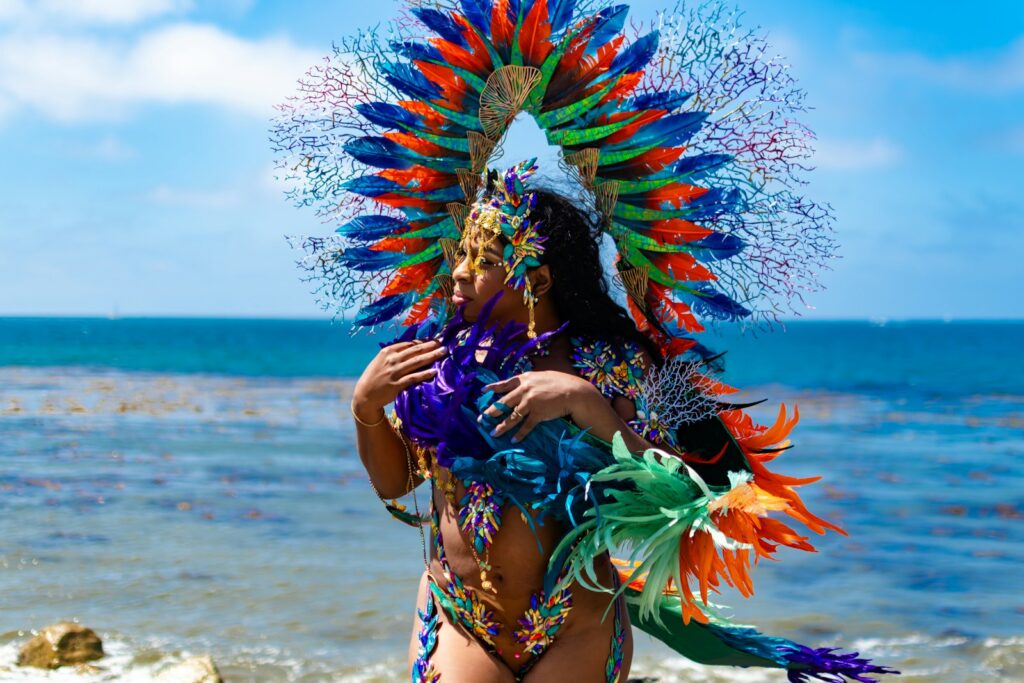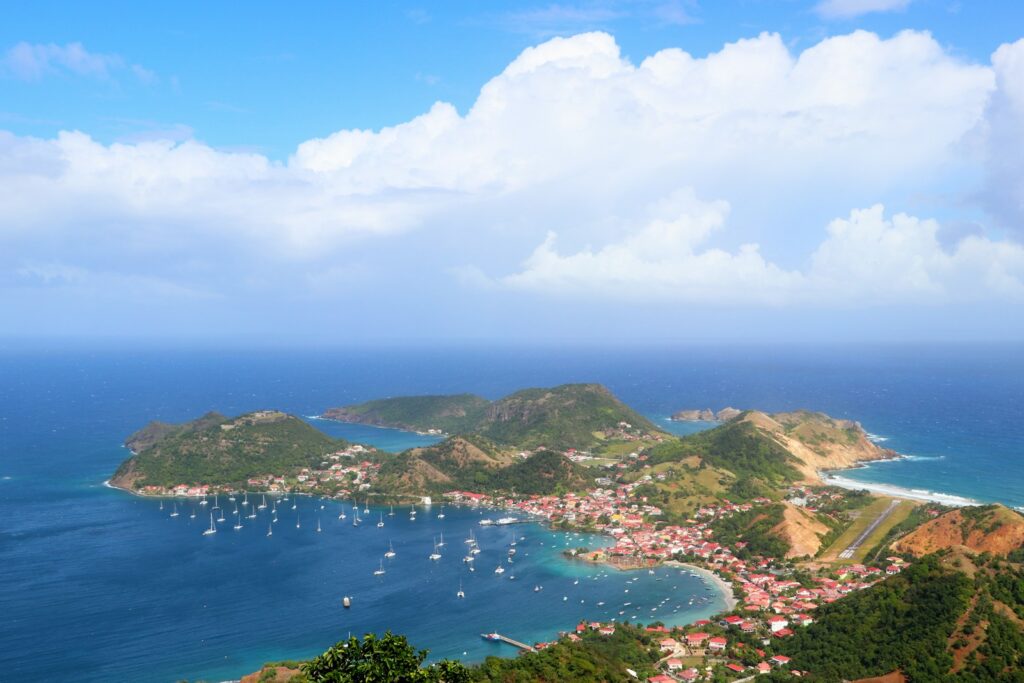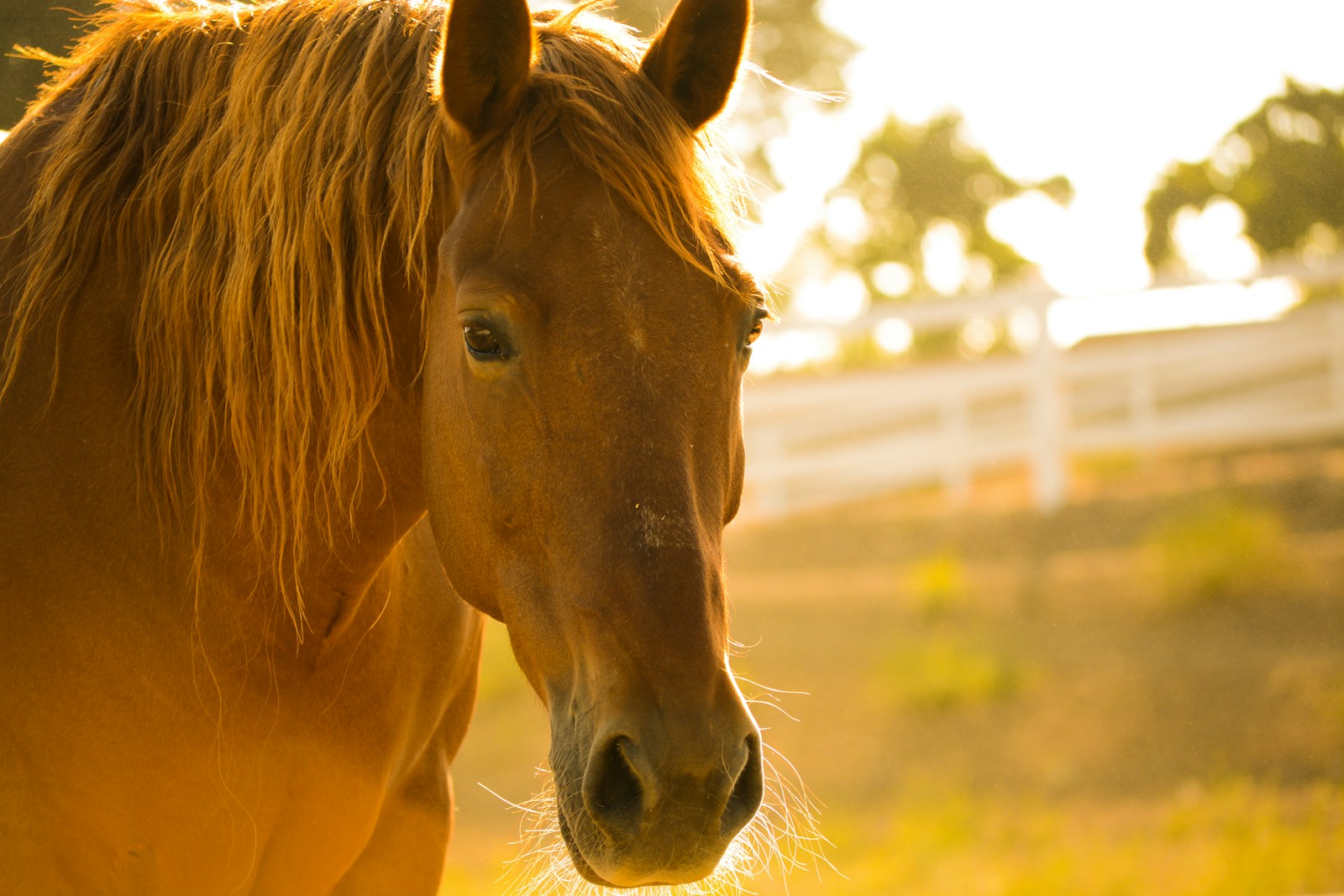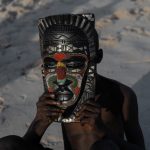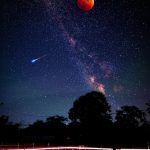Now Reading: Ogun onire” – “Ogun, the one who gives prosperity.”
-
01
Ogun onire” – “Ogun, the one who gives prosperity.”
Ogun onire” – “Ogun, the one who gives prosperity.”
Cuba
In Cuba, Yoruba traditions are deeply embedded in the religion known as Santería (also called Lucumí or Regla de Ocha). The Yoruba language, rituals, and Ifá divination system have been preserved and adapted within this tradition.
- Yoruba Language:
- The Yoruba language is used in Santería rituals, prayers, and songs. While many practitioners may not speak Yoruba fluently, key phrases, chants, and oríkì (praise poetry) are recited during ceremonies.
- Yoruba words are also used to name Orishas (deities), rituals, and sacred objects. For example:
- Elegguá (Eshu/Elegba): The trickster and messenger Orisha.
- Obbatalá (Obatala): The Orisha of purity and creation.
- Iyawó: A initiate in Santería.
- Ifá Divination:
- Ifá is a central component of Santería, used for divination and guidance. The Babalawo (priest of Ifá) interprets the messages of Orunmila (the Orisha of wisdom) through the Opele (divination chain) or Ikin (sacred palm nuts).
- The Odù Ifá (sacred verses) are recited in Yoruba, and their meanings are interpreted to provide solutions to problems or guidance for devotees.
- Songs and Lore:
- Yoruba songs, known as oríkì or cantos, are sung during ceremonies to invoke the Orishas. These songs often include Yoruba phrases and praise names for the deities.
- Example of a Yoruba chant for Yemayá (Yemoja, the Orisha of the ocean):
- “Yemayá olodo, olodo, Yemayá olodo, olodo…”
- Stories and myths about the Orishas, such as the tale of Ogun clearing the forest or Shangó (Shango) wielding his thunder, are passed down orally.
Trinidad
In Trinidad, Yoruba traditions are preserved in the Orisha religion (also called Shango or Yoruba Revivalism). This tradition blends Yoruba practices with elements of Christianity, Hinduism, and Spiritual Baptist faith.
- Yoruba Language:
- Yoruba words and phrases are used in rituals, prayers, and songs. While the language is not spoken fluently, it remains a sacred element of the religion.
- Example: The greeting “Àṣẹ” (pronounced “ah-shay”), meaning “power” or “so be it,” is commonly used.
- Ifá and Divination:
- Ifá divination is practiced by Orisha priests, who use cowrie shells, kola nuts, or other tools to communicate with the Orishas.
- The Odù Ifá are recited in Yoruba, and their interpretations guide devotees in their spiritual and daily lives.
- Songs and Lore:
- Yoruba songs and chants are central to Orisha ceremonies. These songs often call upon the Orishas and recount their deeds.
- Example of a Yoruba chant for Ogun:
- “Ogun alagbede, Ogun onire, Ogun oooo…”
- Yoruba myths and stories, such as the rivalry between Shangó and Oya, are shared during gatherings.
- Festivals:
- The Orisha Festival in Trinidad is a vibrant celebration of Yoruba heritage, featuring drumming, dancing, and offerings to the Orishas. Yoruba songs and chants are performed during these events.
Venezuela
In Venezuela, Yoruba traditions are preserved in the María Lionza religion and other Afro-Venezuelan spiritual practices. These traditions often blend Yoruba elements with Indigenous and Catholic beliefs.
- Yoruba Language:
- Yoruba words and phrases are used in rituals and prayers, particularly in invocations to the Orishas.
- Example: The greeting “Maferefún” (praise be to) is used to honor the Orishas.
- Ifá and Divination:
- Ifá divination is practiced by spiritual leaders, who use cowrie shells or other tools to communicate with the Orishas.
- The Odù Ifá are recited in Yoruba, and their interpretations guide devotees.
- Songs and Lore:
- Yoruba songs and chants are used in ceremonies to invoke the Orishas. These songs often include Yoruba phrases and praise names.
- Example of a Yoruba chant for Changó (Shango):
- “Changó, Changó, Changó alagbara…”
- Yoruba myths and stories are shared during rituals, often blending with local Venezuelan folklore.
Brazil
In Brazil, Yoruba traditions are preserved in Candomblé and Umbanda, two Afro-Brazilian religions that blend Yoruba practices with Indigenous and Catholic elements.
- Yoruba Language:
- Yoruba is used in Candomblé rituals, prayers, and songs. Many Candomblé houses (terreiros) maintain Yoruba as a sacred language.
- Example: The greeting “Àṣẹ” is commonly used.
- Ifá and Divination:
- Ifá divination is practiced by Babalaôs (priests of Ifá), who use the Opele or Ikin to communicate with Orunmila.
- The Odù Ifá are recited in Yoruba, and their interpretations guide devotees.
- Songs and Lore:
- Yoruba songs, known as cantigas, are central to Candomblé ceremonies. These songs often call upon the Orishas and recount their deeds.
- Example of a Yoruba chant for Iemanjá (Yemoja):
- “Odoyá, Iemanjá, Odoyá…”
- Yoruba myths and stories are shared during rituals, often blending with Brazilian folklore.
Cultural Revival and Preservation
In recent years, there has been a growing movement to revive and preserve Yoruba language, Ifá, and cultural practices in the diaspora. This includes:
- Language Classes: Yoruba language classes are offered in diaspora communities to teach younger generations.
Ogun (also spelled Ogún or Ogou) is a prominent deity in the Yoruba religion, which originates from the Yoruba people of Nigeria, West Africa. Ogun is the god of iron, war, labor, and technology. He is revered as a powerful and essential force in both the spiritual and physical worlds, embodying the transformative power of metalwork, the strength of warriors, and the industriousness of laborers. Ogun’s influence extends beyond Nigeria to the African diaspora, particularly in the Caribbean, where his worship has been preserved and adapted in traditions such as Santería, Vodou, and Candomblé.
Historical and Cultural Significance of Ogun
Ogun is one of the principal Orishas (deities) in the Yoruba pantheon. His origins are deeply rooted in Yoruba mythology, where he is often depicted as a fierce warrior and a skilled blacksmith. According to Yoruba tradition, Ogun was the first Orisha to descend to Earth, clearing the path for other deities with his iron tools. This act of creation and destruction symbolizes his dual nature as both a protector and a force of change.
In Yoruba culture, Ogun is associated with:
- Iron and Metalwork: As the god of iron, Ogun is the patron of blacksmiths, mechanics, and anyone who works with metal. He is credited with introducing iron tools and weapons to humanity.
- War and Justice: Ogun is a warrior god who defends his followers and ensures justice. He is invoked for protection in battles and conflicts.
- Labor and Industry: Ogun represents hard work, perseverance, and the dignity of labor. He is often called upon for success in difficult tasks.
- Transformation and Progress: Ogun’s association with iron symbolizes the transformative power of technology and innovation.
Ogun in the African Diaspora
During the transatlantic slave trade, Yoruba beliefs and practices were carried to the Americas, where they merged with other African traditions and local customs. Ogun’s worship became integral to several Afro-Caribbean religions:
- Santería (Lucumí): In Cuba, Ogun is syncretized with Saint Peter or Saint George. He is revered as a powerful warrior and protector.
- Vodou (Haiti): In Haitian Vodou, Ogun is known as Ogou. He is associated with strength, politics, and leadership, often depicted as a soldier or revolutionary figure.
- Candomblé (Brazil): In Brazil, Ogun is worshipped as a fierce and protective deity, often associated with the color blue and offerings of metal tools.
Sayings and Proverbs of Ogun
Yoruba culture is rich in proverbs and sayings that reflect the wisdom and attributes of Ogun. Here are a few examples:
- “Ogun alagbede” – “Ogun, the owner of the blacksmith’s forge.” This highlights Ogun’s mastery over metalwork and craftsmanship.
- “Ogun onire” – “Ogun, the one who gives prosperity.” This emphasizes Ogun’s role in bringing success and abundance to his devotees.
- “Ogun ni ija, Ogun ni ise” – “Ogun is in the battle, Ogun is in the work.” This reflects his dual nature as both a warrior and a laborer.
- “A ki i fi Ogun s’oko, ki a ma fi Ogun s’oko” – “We do not take Ogun to the farm and leave Ogun at the farm.” This proverb underscores the importance of honoring Ogun in all aspects of life.
Revival of African Culture and Ogun’s Role
In recent decades, there has been a resurgence of interest in African traditional religions and cultural practices, both on the continent and in the diaspora. This revival is part of a broader movement to reclaim African identity and heritage, which was often suppressed during colonialism and slavery.
Ogun plays a significant role in this cultural revival as a symbol of resilience, innovation, and strength. His worship is celebrated in festivals, rituals, and art, serving as a reminder of the enduring power of African traditions. For example:
- Ogun Festival: In Nigeria, particularly in Yoruba-speaking regions, the Ogun Festival is an annual event where devotees honor Ogun with offerings, dances, and prayers. The festival often includes the display of iron tools and weapons, as well as rituals to invoke Ogun’s blessings.
- Art and Literature: Ogun has inspired countless works of art, literature, and music, both in Africa and the diaspora. Writers like Wole Soyinka, a Nobel laureate, have referenced Ogun in their works to explore themes of conflict, transformation, and cultural identity.
Conclusion
Ogun is a multifaceted deity whose influence spans centuries and continents. From his origins in Yoruba mythology to his enduring presence in the African diaspora, Ogun embodies the strength, creativity, and resilience of African culture. As the world continues to rediscover and celebrate African heritage, Ogun remains a powerful symbol of progress, justice, and the unbreakable spirit of humanity.



